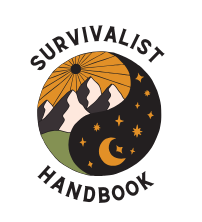Are you ready to conquer the untamed wilderness? Whether you’re an experienced adventurer or just looking to prepare yourself for any situation, mastering the mental game of wilderness survival is crucial. In my blog, “The Survivalist Handbook,” I provide a wealth of knowledge and techniques to help you thrive in any outdoor environment. From building a fire to finding food and water, I cover essential skills and specific threats and scenarios. It’s time to harness your resilience and become a true wilderness survivor. Get ready to embark on an exhilarating journey where your mental strength will be put to the ultimate test.

Understanding Resilience
Definition of resilience
Resilience is the ability to bounce back from challenges, setbacks, and adversity. In the context of wilderness survival, it refers to the mental fortitude and strength to endure and overcome demanding situations. Resilience allows individuals to adapt, stay calm, and make sound decisions in the face of uncertainty and hardship.
The importance of resilience in wilderness survival
While physical skills are crucial in wilderness survival, resilience plays a vital role in determining the outcome of any survival situation. It is the mental game that often separates those who thrive from those who struggle. Resilient individuals are better equipped to handle the stress, fear, and uncertainty that come with being in the wilderness, increasing their chances of survival.
Characteristics of resilient individuals
Resilient individuals possess certain traits that contribute to their ability to thrive in the wilderness. They are mentally strong, adaptable, and flexible. They have a positive mindset, enabling them to maintain hope and optimism even in the face of adversity. Resilient individuals are also problem solvers, able to assess their needs, evaluate risks, and make informed decisions. Additionally, they remain calm under pressure and find strength and purpose in their experiences.
Developing Resilience
Building mental strength through challenges
Resilience can be developed and strengthened. One way to build mental strength is by deliberately putting yourself in challenging situations that push your limits. By engaging in activities that test your physical and mental endurance, you can train your mind to respond effectively to stressful situations and build resilience over time.
Cultivating a positive mindset
A positive mindset is a powerful tool in developing resilience. It involves maintaining an optimistic outlook, focusing on solutions rather than problems, and reframing negative experiences as opportunities for growth. Cultivating a positive mindset enables you to stay motivated, adapt to challenges, and maintain a sense of hope and confidence in the face of adversity.
Practicing adaptation and flexibility
Resilient individuals embrace change and adaptability. They understand that the wilderness is unpredictable, and plans may need to be altered. By practicing adaptability and flexibility in your daily life, you can strengthen your resilience. Embrace new experiences, seek out unfamiliar challenges, and develop the ability to pivot and adjust your strategies when faced with unexpected circumstances.
Managing Fear and Anxiety
The role of fear in wilderness survival
Fear is a natural response to the unknown and can be both beneficial and detrimental in wilderness survival. While fear can signal potential dangers and keep you alert, excessive fear and anxiety can impair decision-making and hinder your ability to think clearly. Managing fear is essential to maintain a calm and focused mindset in survival situations.
Techniques for managing fear and anxiety
There are various techniques to help manage fear and anxiety in the wilderness. One effective technique is to identify and acknowledge your fears, allowing you to confront and evaluate them. Deep breathing exercises can also help regulate your emotions and reduce anxiety. By focusing on slow, deep breaths, you can activate your body’s relaxation response and calm your mind.
Breathing exercises and relaxation techniques
Utilizing relaxation techniques such as progressive muscle relaxation or visualization can help reduce stress and anxiety. Progressive muscle relaxation involves tensing and then releasing each muscle group in your body, systematically promoting deep relaxation. Visualization techniques involve mentally picturing yourself in a calm and safe environment, which can help alleviate fear and anxiety.
Building Confidence
Recognizing and celebrating small successes
Recognizing and celebrating even the smallest achievements can significantly contribute to building confidence in the wilderness. Survival situations often present numerous challenges, and each successful accomplishment should be acknowledged. By acknowledging and celebrating small successes, you reinforce your belief in your abilities and boost your overall confidence.
Setting achievable goals
Setting realistic and achievable goals is crucial in building confidence in wilderness survival. Break down the larger tasks into manageable steps, allowing yourself to experience success at each stage. Each achievement builds upon the last, increasing your confidence and motivating you to tackle more significant challenges.
Positive self-talk and visualization
Engaging in positive self-talk and visualization can help reinforce confidence in survival situations. Replace self-doubt and negative thoughts with positive affirmations and visualizations of successful outcomes. By focusing on positive self-talk and visualizing yourself accomplishing tasks and overcoming obstacles, you can boost your confidence and increase your chances of success.

Problem-solving and Decision-making
Assessing and prioritizing needs
Resilient individuals excel in problem-solving and decision-making by assessing their needs and priorities. In survival situations, it is crucial to identify the most pressing needs for survival, such as shelter, water, and food. By assessing and prioritizing these needs, you can make informed decisions and allocate your time and resources effectively.
Analyzing available resources
Effective problem-solving and decision-making in the wilderness involve analyzing the resources at your disposal. Evaluate your surroundings, equipment, and skills to determine the best course of action. Creative thinking and resourcefulness can help you find innovative solutions and make the most of your available resources.
Evaluating risks and making informed decisions
Resilient individuals carefully evaluate risks and make informed decisions based on available information. Assess the potential risks and weigh them against the potential benefits of a particular action or plan. By considering the potential outcomes and consequences of your decisions, you can minimize risks and increase your chances of survival.
Staying Calm under Pressure
The impact of stress on decision-making and performance
Stress can have a significant impact on decision-making and performance in the wilderness. High-stress levels can impair cognitive function, memory, and attention, making it challenging to think clearly and make sound decisions. Staying calm under pressure is crucial to maintain optimal performance and increase your chances of survival.
Mental and physical techniques to stay calm
There are various techniques to help stay calm in survival situations. Deep breathing exercises, similar to those used to manage fear and anxiety, can help reduce stress and promote a calm state of mind. Engaging in physical activities like stretching or gentle exercises can also help release tension and provide a sense of calmness.
Mindfulness and meditation
Practicing mindfulness and meditation can be highly beneficial in staying calm under pressure. Mindfulness involves being fully present in the moment, observing your thoughts and emotions without judgment. Meditation, on the other hand, focuses on training the mind to achieve a state of deep relaxation and heightened awareness. Regular practice of these techniques can enhance your ability to stay calm and focused in stressful situations.
Adapting to Isolation and Loneliness
Coping with solitude in the wilderness
In the wilderness, isolation and loneliness can be challenging to manage. Resilient individuals find ways to cope with these feelings and maintain their mental well-being. Engage in activities that bring you joy, such as reading, journaling, or exploring your surroundings. Establishing a daily routine and setting goals can also provide structure and a sense of purpose, combating the negative effects of isolation and loneliness.
Strategies for staying connected to loved ones
While in the wilderness, it is essential to find ways to stay connected with your loved ones. Write letters, keep a journal, or use a satellite communication device to send updates to your family and friends. Knowing that you have a support system back home can provide comfort and motivation during challenging times.
Maintaining a positive mental state
Resilient individuals focus on maintaining a positive mental state while in isolation. Practice gratitude and mindfulness, cultivating an appreciation for the beauty and solitude of the wilderness. Engage in positive self-talk and remind yourself of your strengths and capabilities. By maintaining a positive mindset, you can combat feelings of loneliness and stay mentally strong.
Dealing with Uncertainty
Accepting the unpredictability of the wilderness
Wilderness survival is inherently unpredictable, and resilient individuals accept and embrace this uncertainty. Recognize that no situation can be entirely controlled, and adaptability is key. By accepting the unpredictability of the wilderness, you can let go of the need for absolute certainty and be better prepared to face unexpected challenges.
Finding comfort in adapting to change
Resilience involves finding comfort in adapting to change. Rather than resisting change, resilient individuals embrace it as an opportunity for growth and learning. Develop a flexible mindset and view change as a chance to acquire new skills and knowledge. By finding comfort in adapting to change, you can navigate the uncertainties of the wilderness more effectively.
Creating a sense of control through preparation
While many aspects of the wilderness are beyond our control, resilient individuals create a sense of control through preparation. Take the time to learn essential survival skills, gather the necessary equipment, and create a comprehensive survival plan. By being well-prepared, you can mitigate potential risks and increase your confidence in the face of uncertainty.
Finding Purpose and Meaning
Connecting with nature and the wilderness
Resilient individuals find purpose and meaning by connecting with nature and the wilderness. Take the time to appreciate the beauty and serenity of your surroundings, immersing yourself in the healing power of nature. Develop a deep respect and understanding of the interconnectedness of all living things, fostering a sense of purpose and responsibility.
Developing a sense of purpose in survival situations
In survival situations, resilient individuals find purpose in maintaining their well-being and survival. Focus on the immediate needs, such as finding food, water, and shelter. By prioritizing your well-being, you maintain a sense of purpose and motivation to overcome challenges.
Embracing the lessons and growth from the experience
Resilient individuals embrace the lessons and growth that come from the wilderness survival experience. Each challenge and setback provides an opportunity for learning and personal development. Reflect on your experiences, identify areas for improvement, and acknowledge your progress. By embracing the lessons and growth, you cultivate resilience and enhance your future survival skills.
Conclusion
Harnessing resilience for successful wilderness survival
Resilience is a powerful tool in wilderness survival, enabling individuals to endure and overcome the challenges of the wild. By developing mental strength, cultivating a positive mindset, and practicing adaptation, individuals can harness their resilience to navigate survival situations successfully.
Continuing to develop and strengthen resilience
Resilience is not a fixed trait but rather a skill that can be cultivated and strengthened over time. Continually seek out opportunities to challenge yourself, build mental strength, and develop adaptive strategies. Through ongoing practice and self-reflection, you can continue to enhance your resilience in wilderness survival and other aspects of life.
The lasting impact of the mental game on survival
The mental game of wilderness survival is a fundamental aspect of overall preparedness. While physical skills are essential, it is the mental fortitude and resilience that ultimately determine survival outcomes. By understanding and harnessing the power of the mental game, individuals can equip themselves with the tools and mindset to overcome any challenge in the wilderness.

